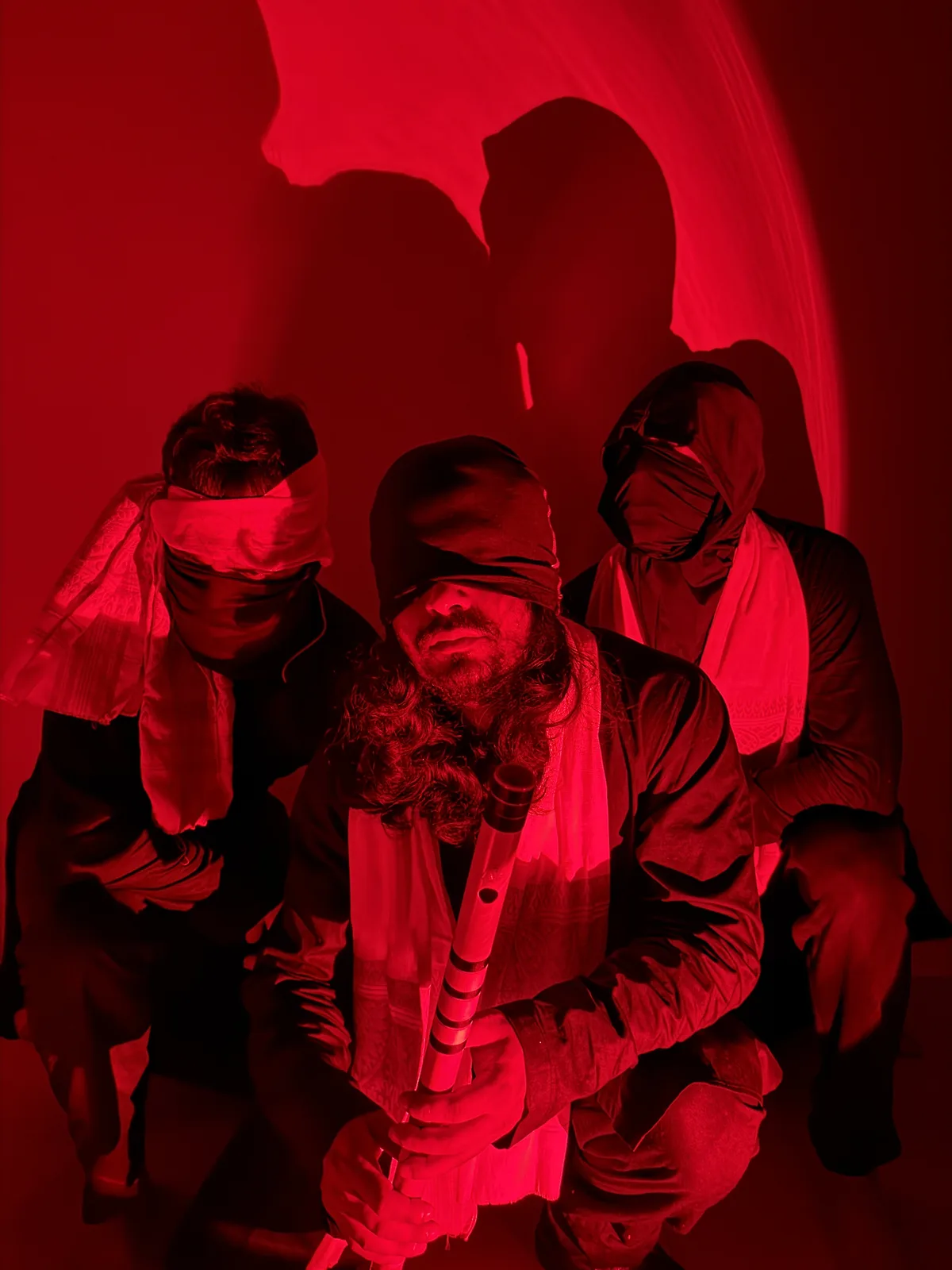Haalaat, with a runtime of roughly over 16 minutes, exists somewhere on the indie-pop-rnb-hip-hop spectrum like much of the work coming out from the stable of Delhi based hip-hop trio Teesri Duniya. Karun’s last release, Granth stood out last year among the flow of releases with its distinct sound. The same must also be said of the plethora of Teesri Duniya’s releases which have now shaped up to be a body of work that demands attention.
The members of Teesri Duniya have been releasing music both individually and as part of the collective since 2017 and do not show any signs of stopping. While Karun is known for his poetic verses and melodies, Udbhav and Kuns dabble in both production and vocals, not shying away from experimentation with different styles. Teesri Duniya does not have a defined sound, with a versatile discography distributed across its three members, laden with collaborations with talent spread across the country.
Karun’s voice, his heavy baritone texture, which flows somewhere between rapping and spoken word is played off in the EP against a range of other voices and soundscapes. The baritone-voiced delivery somewhere between rap and spoken word is undoubtedly emerging as a distinct style among Hindi rappers going for the poetic persona. Lil Kabeer’s recent release and the criminally underexplored work of Jadugar Tapes for example traverse similar territory. But it is the overall composition of the tracks and how they are arranged that makes Karun and Haalaat stand apart.

The EP begins with a track with some soft looped guitar notes and indie-pop-ish sung parts by in “Nazraan” giving way to the baritone voice of Karun which sees repeat collaborators toorjo dey and Udbhav on the track. A more-or-less similar lethargic mood surrounds “Jaan Lo” with a minimal beat produced by Vedang accompanying a verse by Yashraj. In “Haalaat – Interlude” forays into spoken word territory over an ambient track. The rather tired rock-ish hook in “Majboor” featuring OM weighs down the rapped verse which displays a chopper flow by Karun in a baritone husky voice. The EP closes with “Sarphira” with the catchiest hook in the EP and relatively interesting sung parts closing off on a high note.
Karun’s catalogue is now three full-length releases long and it’s shaping up pretty decent. Though I managed to spin the EP a few times and despite the tracks being decent on their own, the EP as a collection wore off on me pretty quickly. In terms of lyrical and sonic diversity Karun’s last release Granth (2020) was a significantly stronger release. It is probably that expectation that weighed me down.





























